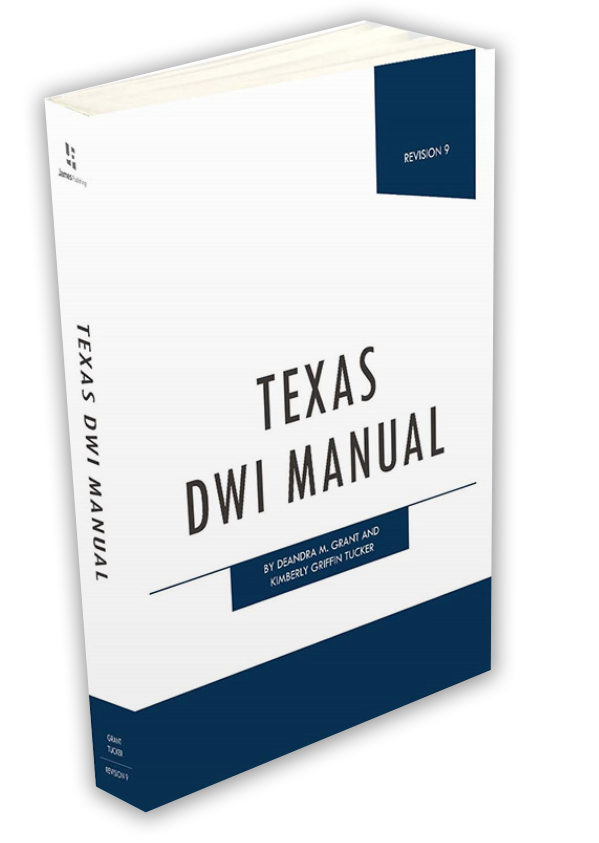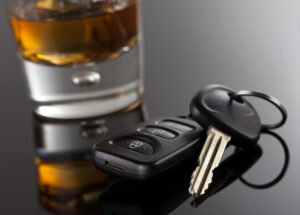Do You Need Legal Help?

"Deandra Grant Law fights hard for their clients and is always willing to go above and beyond. They are the best firm for DWI cases in DFW and beyond. Definitely hire them to represent you in any pending cases."
- P. Williams

"Deandra Grant made a tough situation so much better. She listened to my concerns and helped me so much with my case. I would recommend her to anyone needing legal services."
- M. Haley

"Deandra Grant Law handled my case with diligence and professionalism. Deandra Grant's reputation is stellar and now I know why. She has a team of individuals who provide quality service."
- N. Coulter
As Seen On





A Fighting Team On Your Side
Since 1994 when our doors opened, Deandra Grant Law has helped thousands of clients get their DWI charges reduced or dismissed. We're ready to fight on your behalf.

Managing Partner
Partner & Criminal Division Chief
Criminal Division Senior Associate
Criminal Division DWI Trial Chief
Immigration Division Chief & Criminal Division Deputy Chief
Criminal Division Associate

Texas DWI Manual
By Attorney Deandra Grant
Fighting DWI charges can present many challenges, not only for the defense, but prosecutors as well. This is why it is important to be armed with the necessary knowledge so you understand the DWI process.
Attorney Deandra M. Grant is the co-author of the Texas DWI Manual, offering legal advice to both clients and fellow attorneys. Fighting DWI charges can present may challenges, not only for the defense, but prosecutors as well. This is why it is important to be armed with the necessary knowledge so that you understand the DWI criminal process.
Learn MoreTexas DWI Attorneys
Your Advocate in the Face of DWI Charges
If you’ve found yourself on this page – it’s likely that you’re facing a challenging situation – a DWI charge in Texas. The uncertainty about the future can be overwhelming. We understand the stress you’re experiencing. At Deandra Grant Law, we’re here to provide you with the legal support you need during this difficult time. Our experienced Texas DWI attorneys are committed to helping you pursue a positive outcome for your case.
Understanding DWI Charges in Texas
Driving While Intoxicated (DWI) charges in Texas, can result from operating a vehicle with a blood alcohol concentration (BAC) of 0.08% or higher. The consequences of a DWI conviction can be severe and life-altering, affecting your driving privileges, employment opportunities, and even your personal reputation. It’s essential to recognize that being charged with a DWI doesn’t equate to a conviction – you have the right to defend yourself.
Penalties for DWI in Texas
In Texas, the penalties for DWI (Driving While Intoxicated) can vary depending on the specific circumstances of the offense and the number of prior DWI convictions. Generally, the penalties become more severe with each subsequent offense. Here are the typical penalties for DWI in Texas:
First DWI Offense:
Class B misdemeanor
Up to 180 days in jail
Fine of up to $2,000
Driver’s license suspension for up to 1 year
Annual surcharge of $1,000 or $2,000 for three years to retain driver’s license
Second DWI Offense:
Class A misdemeanor
30 days to 1 year in jail
Fine of up to $4,000
Driver’s license suspension for up to 2 years
Annual surcharge of $1,000, $1,500, or $2,000 for three years to retain driver’s license
Third DWI Offense:
Third-degree felony
2 to 10 years in prison
Fine of up to $10,000
Driver’s license suspension for up to 2 years
Annual surcharge of $1,000, $1,500, or $2,000 for three years to retain driver’s license
DWI with a Child Passenger:
State jail felony
180 days to 2 years in state jail
Fine of up to $10,000
Intoxication Assault (causing serious bodily injury while intoxicated):
Third-degree felony
2 to 10 years in prison
Fine of up to $10,000
Intoxication Manslaughter (causing death while intoxicated):
Second-degree felony
2 to 20 years in prison
Fine of up to $10,000
The Importance of Legal Representation
Facing DWI charges without proper legal representation can be a daunting task. Navigating the complex legal system on your own can lead to unfavorable outcomes. This is where our Texas DWI attorneys step in – to provide you with expert guidance, strategic defense, and unwavering support throughout the legal process.
Why Choose Our Texas DWI Attorneys?
Our team of skilled Texas DWI attorneys specializes in DWI defense. We possess an in-depth understanding of Texas DWI laws, local court systems, and the nuances of DWI cases, allowing us to create effective defense strategies tailored to your unique circumstances.
Experience: With years of experience in DWI defense, we have successfully handled numerous cases for our clients. Our track record speaks for itself, showcasing our commitment to achieving positive results for those we represent.
Strategic Approach: Every DWI case is unique, and we believe in a personalized approach. Our Texas DWI attorneys meticulously analyze the evidence, question the legality of stops and arrests, and explore potential procedural errors that could work in your favor.
Negotiation Skills: While preparing for trial is crucial, many DWI cases are resolved through negotiation. Our skilled negotiators are adept at engaging with prosecutors to seek reduced charges or alternative sentencing options when appropriate.
Trial Preparedness: If your case proceeds to trial, you can trust our attorneys to be prepared, confident, and skilled in presenting your defense to a judge and jury. Our courtroom experience is an asset that can significantly impact the outcome of your case.
Related Videos
Certified in the science and testing of DWI enforcement
Appealing a DWI or BWI
Biggest Mistakes of a DWI Charge
Lawyer Scientist Certification
Boating while intoxicated with a child
DWI with a child in the car
Can I travel out of country with a DWI?
Going to Canada with a DWI
Choosing a DWI attorney
Choosing quality over cost with a DWI attorney
Cost of a DWI attorney
Cost of a BWI attorney
DWI on your criminal record
DWI probable cause
DWI while operating a boat
DWI with prior convictions
Emotional state of a DWI client
How long does a DWI conviction stay on my record?
How long will a DWI case take?
Operating a boat during pending DWI charges
Out-of-state DWI Arrest
Police didn’t have probable cause
Relieving stress of a DWI client
Prescription Drug DWI
Texas DWI Manual
Underage DWI Penalties
Hiring a lawyer who has an ACS-CHAL Forensic Lawyer-Scientist designation
What do officers watch for during a DWI traffic stop?
How do police reports affect a DWI case?
No Miranda warning given
Prior DWI conviction penalties
Challenging breathalyzer and blood test results
Legal strategies to challenging DWI charges
Mandatory minimum sentences for DWI convictions
Steps to take after being pulled over for DWI
Criminal process of a DWI
Charged with a DWI while sitting in your car
First time DWI charge
Second DWI charges
Third DWI charges
Being sent to jail for a first time DWI
Being sent to jail for multiple DWIs
Can I defend myself against a DWI charge?
Can I refuse a breathalyzer test?
Can refusing a breath or blood test help my case?
College age child arrested for DWI
Court process for a DWI charge
DWI license suspension
Driving during your license suspension
Legal alcohol limit
DWI with injury penalties
DWI written case evaluations
Expunging a DWI charge
Ignition Interlock Device
Losing your job from a DWI
Losing your license from a DWI
Penalties from a DWI conviction
Plea bargaining a DWI charge
Will pleading guilty reduce a DWI charge?
Refusing to answer police questions during a DUI arrest
Refusing field sobriety tests
Why you should choose a DWI attorney with lawyer scientist certification
Should I take a field sobriety test?
Administrative license revocation (ALR) process
Diversion programs for first-time DWI offenders
DWI defenses
What causes poor performance of field sobriety tests?
Charged with DWI after blowing below .08 BAC
Handgun in your vehicle during a DWI arrest
Can I choose between a breath or blood test?
What evidence is used against me for DWI?
Statistical Insight: The Impact of Legal Representation
According to recent statistics from DWI cases in Texas:
Defendants who had legal representation were more likely to receive reduced charges or favorable plea bargains compared to those without legal counsel.
A significant percentage of DWI cases resulted in dismissal or acquittal due to strong legal defense strategies.
Experience When You Need it Most
When you’re facing a DWI charge, your choice of legal representation can make all the difference. The consequences of a DWI conviction in Texas, can be life-altering, affecting your freedom, finances, and future opportunities. At Deandra Grant Law, we understand the gravity of your situation, and our experienced Texas DWI attorneys are here to provide you with the guidance and defense you need.
The Impact of DWI Convictions
A DWI conviction can lead to a range of serious consequences, including:
Fines: Hefty fines that can strain your finances.
Jail Time: Imprisonment that disrupts your life and responsibilities.
Criminal Record: A permanent mark on your record that can affect employment prospects and more.
Driver’s License Suspension: Losing your driving privileges, impacting your daily routine.
Related Blogs
Avoiding Common Mistakes After a DWI Arrest: Your Path to Clarity with Deandra Grant Law
Guidance for Navigating Uncertainty
Being arrested for a DWI in Texas can be an overwhelming experience. The confusion and stress you’re feeling are completely normal, but it’s important to approach this situation with caution and informed decisions. At Deandra Grant Law, our seasoned Texas DWI attorneys are here to provide you with the guidance you need to avoid common pitfalls and make informed choices about your case.
Mistakes to Avoid After a DWI Arrest
Talking Without Legal Counsel: It’s crucial to remember that anything you say to law enforcement can be used against you. After a DWI arrest, you have the right to remain silent and the right to an attorney. It’s best to exercise these rights and wait until you have legal representation before discussing your case.
Neglecting Your Driver’s License: DWI charges not only affect your criminal record but can also result in a suspended driver’s license. Failing to take timely action regarding your license could lead to additional complications. Seek legal advice promptly to understand your options.
Assuming Guilt: Being charged with a DWI doesn’t automatically mean you’re guilty. Prosecutors need to prove their case beyond a reasonable doubt. Don’t assume defeat – a skilled Texas DWI attorney can assess the evidence and identify potential weaknesses in the prosecution’s case.
Frequently Asked Questions After a DWI Arrest: Answers from Deandra Grant Law
Facing a DWI arrest in Texas can leave you with a whirlwind of questions and uncertainties. At Deandra Grant Law, we understand the importance of providing you with accurate information to help you make informed decisions about your situation. Below, we’ve compiled answers to some of the frequently asked questions individuals like you often have after a DWI arrest.
While you have the right to represent yourself, having an experienced Texas DWI attorney can significantly improve your chances of a favorable outcome. DWI cases involve complex legal procedures and potential consequences. A skilled attorney can guide you through the process, build a solid defense, and protect your rights.
After a DWI arrest, your driver’s license could be suspended. You typically have a limited time to request an Administrative License Revocation (ALR) hearing to challenge the suspension. A DWI attorney can assist you in navigating this process and fighting to retain your driving privileges.
While you have the right to refuse these tests, there can be consequences, such as an automatic driver’s license suspension. Refusal might also be used as evidence against you. Consulting with an attorney can help you understand the pros and cons of your decision in your specific situation.
DWI penalties vary based on factors such as prior convictions and the circumstances of the offense. Penalties can include fines, license suspension, probation, mandatory alcohol education programs, and even jail time. A knowledgeable attorney can assess the details of your case to provide an estimate of potential penalties.
Yes, failing sobriety tests doesn’t automatically make you guilty. Field sobriety tests can be influenced by various factors, including nervousness, medical conditions, and even road conditions. An attorney can examine the test procedures, possible errors, and other evidence to challenge the validity of the results.
Not necessarily. Many DWI cases are resolved through negotiation or plea bargains, resulting in reduced charges or alternative sentencing options. However, if a trial becomes necessary, having a skilled attorney is essential to present your defense effectively.
In Texas, a DWI conviction cannot be expunged, which means it will remain on your record permanently. However, there might be opportunities for record sealing or obtaining a pardon in certain cases. Consulting with an attorney can provide insight into your options.
At Deandra Grant Law, our experienced Texas DWI attorneys can offer tailored guidance, aggressive defense strategies, and compassionate support throughout your DWI case. We provide free consultations to assess your situation, answer your questions, and help you understand the right course of action for your specific circumstances.
DWI Defense Client Story
This client story is for educational purposes only.
In the midst of the chaos that life can unexpectedly thrust upon us, Kenneth found himself in the heart of a storm. He had been arrested for DWI in Texas, and his world was spinning out of control. The weight of the situation was heavy, and he needed a lifeline. Little did he know that Deandra Grant Law would be the guiding light that led him to calmer waters.
Kenneth’s days had been filled with worry, sleepless nights, and a constant feeling of uncertainty. The looming legal battle was a daunting prospect, and he wasn’t sure where to turn. With each passing day, the shadow of potential consequences grew longer, casting doubt on his future.
Then, like a beacon of hope, Deandra Grant stepped into Kenneth’s life. She was more than just an attorney; she was a pillar of strength and understanding. From the moment they spoke, Kenneth felt a glimmer of hope rekindle within him. It wasn’t just about the legal expertise she possessed – it was the genuine care she had for his well-being that truly made the difference.
Deandra listened to Kenneth’s story with compassion, putting herself in his shoes to truly understand the fear and anxiety he was experiencing. She patiently explained the legal process, breaking down the complexities into manageable pieces. Kenneth’s confusion began to give way to clarity, and his fear was replaced by a newfound sense of determination.
As the case unfolded, Deandra’s dedication shone through. She meticulously examined every detail, leaving no stone unturned in her pursuit of justice. With a fierce resolve, she challenged the evidence, questioned the legality of the arrest, and crafted a defense that highlighted the nuances of Kenneth’s situation.
Throughout the journey, Deandra was more than just a legal advocate – she was a source of unwavering support. She was there to answer Kenneth’s questions, calm his concerns, and provide a steady hand during the storm. Her commitment to his case was palpable, and Kenneth found solace in knowing that he wasn’t fighting alone.
Finally, the day of reckoning arrived – the day when the truth would be unveiled. The courtroom was a battleground, and Deandra’s presence radiated confidence. With eloquence and conviction, she presented Kenneth’s case, leaving no doubt in anyone’s mind that justice was on his side.
And then, like the sun breaking through the clouds after a tempest, the verdict was delivered: not guilty. The weight that had burdened Kenneth for so long was lifted in an instant. The journey had been long and challenging, but with Deandra Grant Law by his side, Kenneth had emerged victorious.
Your Future is Our Priority: Contact Our Texas DWI attorneys at Deandra Grant Law Today
If you find yourself facing a DWI charge in Texas, know that you don’t have to navigate this challenging time alone. At Deandra Grant Law, we’re here to provide you with the expert legal guidance and dedicated support you need to pursue a positive outcome for your case.
Your First Step: A Free Consultation
We understand that the aftermath of a DWI arrest can be overwhelming, leaving you with countless questions and concerns. That’s why we offer free consultations to all prospective clients. This initial meeting allows us to listen to your story, evaluate the details of your case, and provide you with a clear understanding of your options moving forward. We’re here to guide you through the legal process and give you the information you need to make informed decisions.
A Comprehensive Approach to Your Defense
At Deandra Grant Law, we believe in a personalized approach to every case. Our experienced Texas DWI attorneys will meticulously analyze the evidence, challenge any potential violations of your rights, and craft a strategic defense tailored to your unique circumstances. We leave no stone unturned in our pursuit of justice and a positive outcome for you.
Your Future Matters
Facing a DWI charge can feel like an uphill battle, but you have the power to shape your future. By choosing Deandra Grant Law as your advocate, you’re choosing a team that is dedicated to protecting your rights, minimizing the impact of the charges on your life, and ensuring that your voice is heard in the legal process.
Don’t delay – contact us today for your free consultation. Let us provide you with the support and expert legal representation you deserve during this challenging time. Your future is worth fighting for, and we’re here to stand by your side every step of the way. Remember, with Deandra Grant Law, your future is our priority.
Client Reviews
![]()
“Deandra Grant Law handled my case with diligence and professionalism. Deandra Grant’s reputation is stellar and now I know why. She has a team of individuals who provide quality service.”














